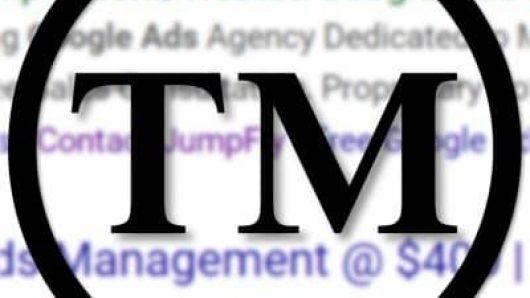Google’s trademark policy can be confusing to many business owners. When can trademarks be used as keywords? When can they be used in ads? How do you stop someone from advertising improperly on your trademark?
To be clear, a trademark is a word, phrase, logo, or symbol that identifies and distinguishes a product or service from others in the marketplace, and has been filed with the U.S. Patent and Trademark Office (or other entity in their country). Multiple trademark owners may claim the right to the same term, as long as each owner operates in a different industry. Trademark ownership is location-based, and therefore must be obtained on a country-by-country basis.
There are two parts to trademark usage in digital advertising.
- Keywords: Google and Microsoft both allow trademarks to be used as keywords.
- Ad Copy: This is where it gets a bit murky. Under normal circumstances, only the trademark owner is allowed to use their trademark in their ads. There are exceptions for the following:
- Resellers: If the landing page that the ad goes to is primarily focused on selling that product or service, the trademark usage is allowed. Common industries this applies to are retailers, travel agencies, ticket sellers and others that resell products, tickets and services.
- Informational Sites: If the primary purpose is to provide information about that product or service, the trademark is allowed. This includes coupons sites, which can be a big source of irritation for retail clients.
However, using the trademark for competitive purposes or to mislead the searcher is not allowed.
Sometimes you may receive a cease and desist letter from a company saying that you aren’t allowed to advertise using their keyword. But that’s a scare tactic. Trademarks are permissible as keywords.
As for the ad copy, using trademarks in ad copy, without a reason the fits the parameters above is asking for trouble. You might get away with it for a while, but either Google or the trademark owner will eventually find out. Google will just disapprove your ad. What the trademark owner does is up to them.
It’s possible to get tripped up with having a trademark in your ad accidentally when you use Google’s or Microsoft’s keyword insertion tool, which allows the searched term to be inserted into the ad copy as text. As a result, it’s best practice to never use keyword insertion in competitor ad groups.
What if your trademark is the one being violated by someone using your trademark in their ads? Google and Microsoft both allow the trademark owner to submit a trademark complaint.
Sometimes ads get disapproved in Google for trademark use, and they require the advertiser to get permission from the trademark owner. Trademark owners can grant an advertiser rights to use that trademark, using the same forms that are used to report issues.
If you’d like to know more about advertising on brand keywords, check out the webinar I did with Brand Verity.
Editor’s note: This post was originally written June 26, 2008, and was updated Dec. 11. 2019.




